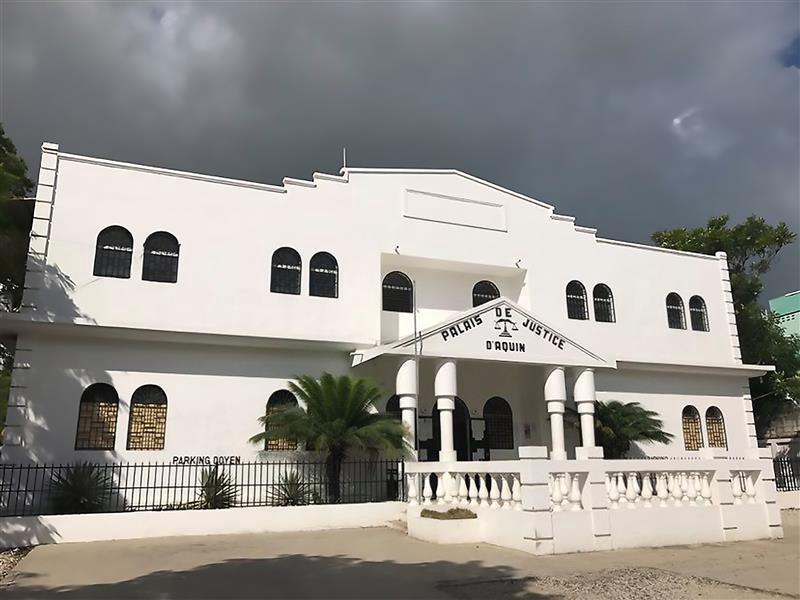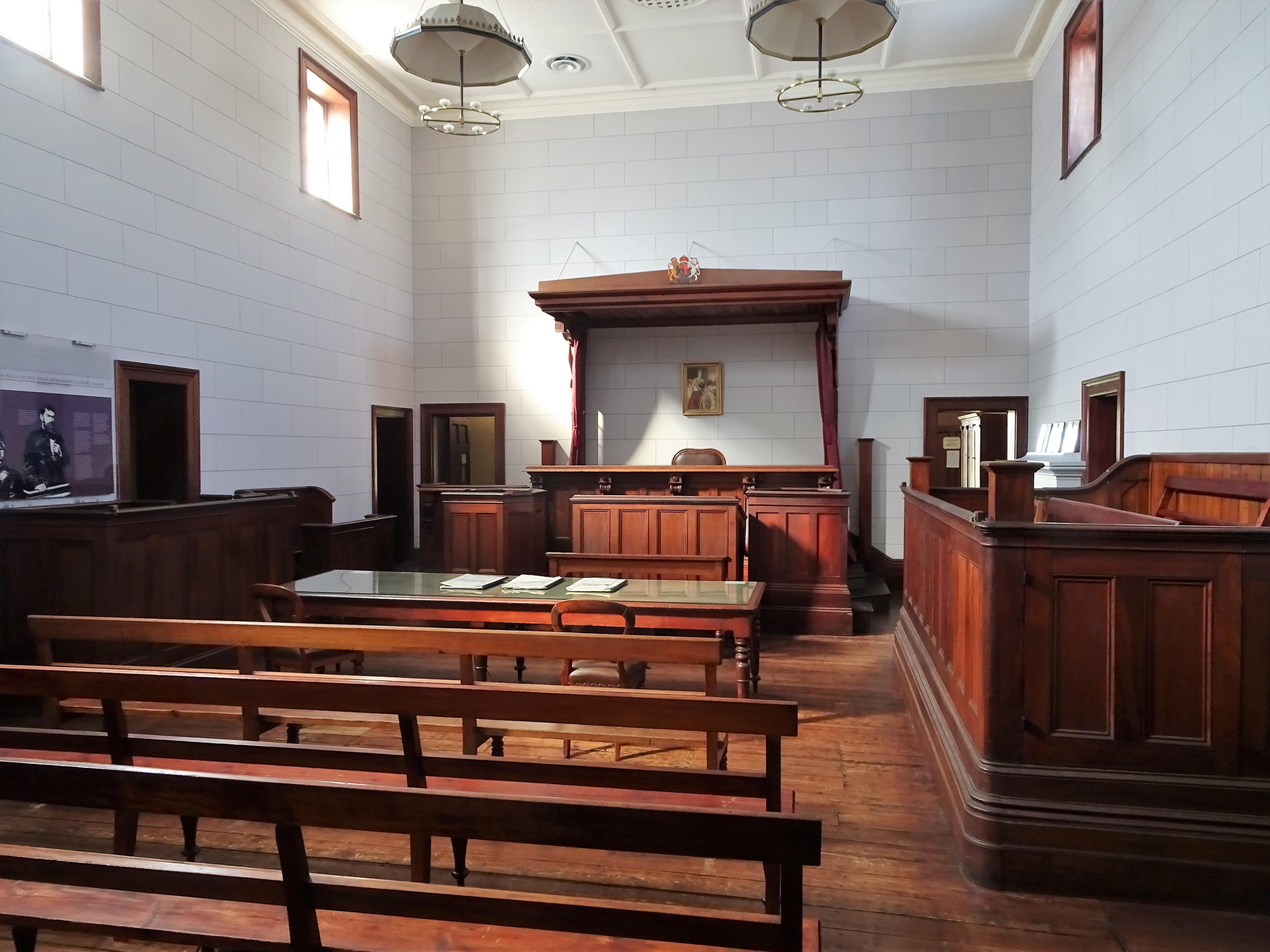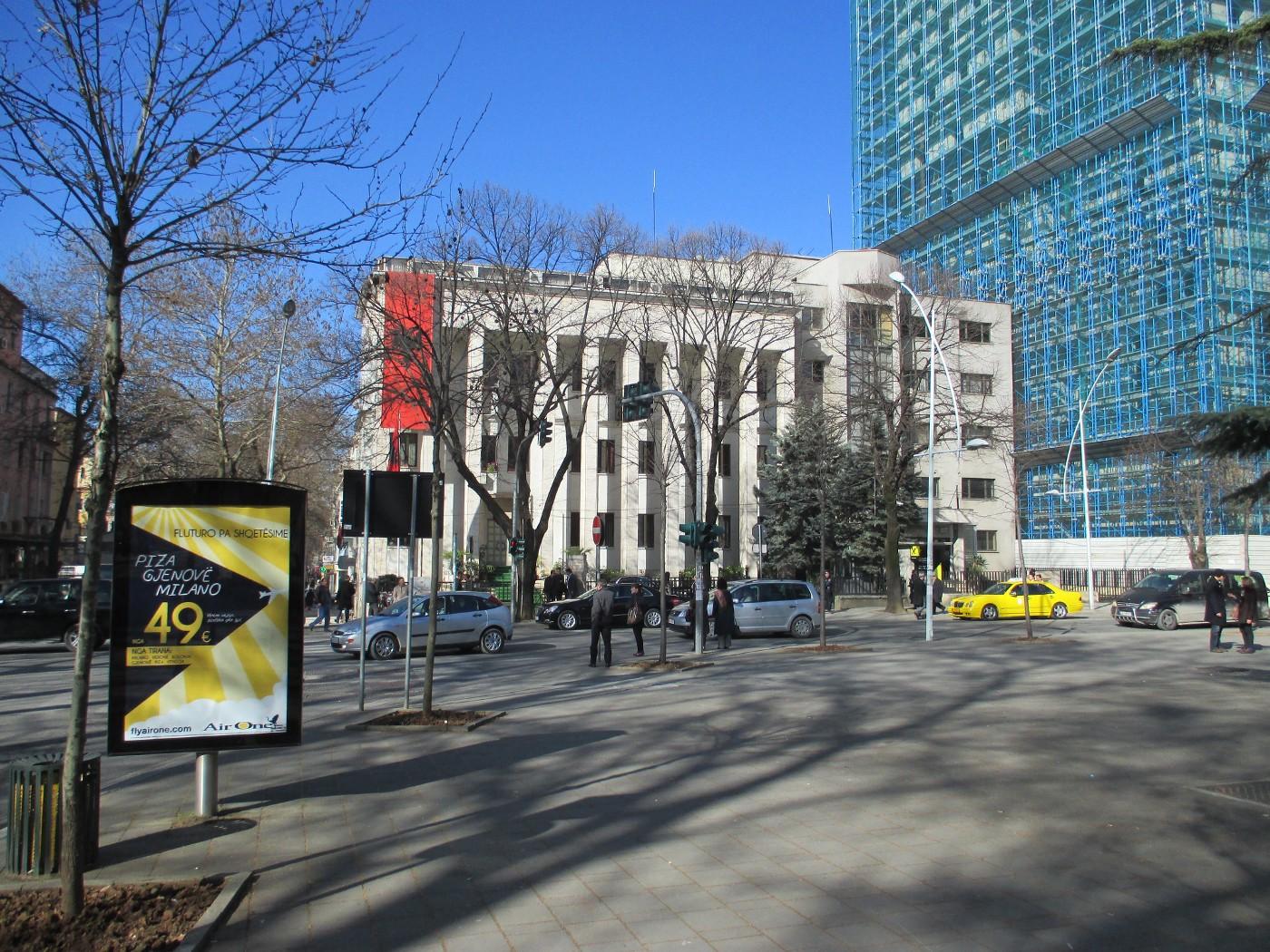Blog
Strengthening the Haitian prosecution service to end impunity

In Haiti, the largest French-speaking country of the Caribbean, barriers to access justice are numerous and common. Likewise, there are frequent hurdles to be overcome when investigating cases of corruption. Thus, it is no surprise that the country sees very few crimes of ‘high-level corruption’ prosecuted. ‘High-level corruption’ here is defined to mean the abuse of power by political and economic elites for private financial gain. This situation goes hand in hand with impunity and has a negative impact on development.
Justice system
The Haitian justice system is based on the French civil law system. Here, commissaires du gouvernement, also known as magistrats du parquet or magistrats debout (standing magistrates), are in charge of defending public order and law enforcement in the name of society. They play the role of prosecutors and forward claims and complaints to investigative judges.
When it comes to investigating corruption in Haiti, several investigative and control bodies are in charge. Most of these have been recently created. Among the institutions are the Central Financial Intelligence Unit (UCREF, created in 2001); the Anti-Corruption Unit (ULCC, created in 2004); the National Commission for Public Procurement (CNMP, redefined in 2004); and the Inspectorate General of Finances (IGF, created in 2006). Also important is a centuries-old institution, the functions of which changed and evolved until it became the Superior Court of Accounts and Administrative Litigation (CSCCA) in 1983.
The investigation of a crime, including corruption, usually arises because of a suspicion or complaint. It is then finalised under a report prepared and sent for the attention of the prosecutors by an investigative body such as ULCC or UCREF.
There is some debate regarding the level of discretionary power at this level. According to the law, Haitian prosecutors have to forward any claims or complaints received to investigative judges, which implies they ‘do not have discretionary power’. Nonetheless, in practice, they seem to be able to grant this power to themselves.
In terms of prosecuting high-level corruption, there is also a problem of lack of specialisation among prosecutors. Crimes of corruption often involve financial schemes that can be highly complex and require specific skills for adequate prosecution.
Appointment and removal of prosecutors
In Haiti, the government appoints prosecutors, commissaires du gouvernement. Appointment takes place either through direct integration or via merit-based procedures at the end of their training at the School of Magistrates (EMA). Regardless of the nomination process, prosecutors are easily removable from office, as — unlike judges — they do not have a fixed-term mandate.
Although the Minister of Justice can remove them, prosecutors are not legally required to follow his/her direct instructions. Nonetheless, their lack of independence often raises legitimate concerns. Prosecutors can be arbitrarily nominated — especially through the direct integration process — or removed. Partly as a result, they may be easily corrupted, forced to defend certain interests, and/or tempted to request bribes to make the most of their uncertain position.
A combination of effective case management, civil society monitoring, specialisation in financial matters, and more transparency may address these risks. I outline this in more detail in the following paragraphs.
Legislative reform on appointments and dismissals
If the fight against financial crimes in Haiti is to be effective, it is essential to reduce corruption risks within the prosecution system. At the same time, it is important to strengthen the role of prosecutors. A first step should probably be legislative reform to guarantee a fixed-term mandate for prosecutors, revocable in cases of serious misconduct only. This would grant them independence. It would also create an opportunity to legally modify or clarify the appointment process and the management of cases. However, legislative reform is complex and may require years to take place. An initial alternative could be to promote transparency and accountability as a means to curb corruption.
Improved transparency
Without changing the legal framework, a number of mechanisms could help raise awareness of existing procedures and empower civil society. Transparency, as a primary mechanism, could be promoted by the government in the form of pre-selection contests for prosecutors held through an open platform. Such a platform could be hosted on the websites of the EMA and the Office of Management and Human Resources (OMRH). This latter institution could play a key role in the hiring process, especially for positions which may be ‘filled through discretionary appointment’.
Strict rules and criteria — including wealth declarations, qualifications, and background checks — would help provide a shortlist to the executive branch and legitimate its choices. In addition, revocation processes could be publicly justified by the government. Meanwhile, prosecutors could have a platform to defend themselves against threats and also benefit from whistle-blowers in cases of unjustified removal.
Case management and training
Transparency could also be encouraged by the prosecution office implementing a case management system. Building a clear and systematic process — ideally with an e-management system — would help the overview of activities. Experts with experience in the region could carry out capacity-building trainings tailored for clerks working at the prosecution level, civil society organisations, and external investigative bodies. This would facilitate a multilevel approach to monitoring. With transparent registration and assignment of cases, as well as real-time information on delays, different actors could monitor the prosecution system.
This system could also make public information available regarding the assignment of cases among prosecutors. Yet it is important to take into consideration that revealing the identity of a prosecutor or a judge could jeopardise the process by allowing the possibility of external threats. Another option could be the random selection of prosecutors from a list of available specialised prosecutors. In this regard, it is important to evaluate each possibility.
The system’s assignment of financial cases to specific prosecutors also means defining strict criteria, including expertise and experience. Haiti’s poor results in the prosecution of crimes of corruption imply the need for intensive training in financial investigation. Here, partnerships between local and international schools of magistrates and other learning centres could be organised to develop a specialised curriculum. A coordinated donor response could provide assistance. Also, mentorship programmes and on-site training could be implemented in partnership with former prosecutors from countries with a similar system, such as France.
Role of civil society
It is also very important to analyse the role and the organisation of civil society in Haiti. Civil society organisations can sometimes act as ‘political tools’ — that is, they defend specific interests rather than the public interest. Or they may lack knowledge on specific matters such as financial crimes or corruption. Yet, citizen monitoring provides an opportunity to support the creation of new initiatives and strengthen existing ones. Having civil society monitoring and advocating at all stages of prosecution of corruption cases — from recruitment of prosecutors to case assignment — could result in a push for better government accountability.
As a relatively new way of operating in Haiti, this would require a participatory approach backed by an awareness-raising strategy. This could be implemented by civil society organisations acting in partnership with the investigative bodies and the prosecution office. The idea would be to emphasise the long-term benefits of a participatory approach. The silent victims of corruption are the citizens who are deprived of much-needed services. It is crucial to empower them, so they can claim their rights and contribute to the prosecution of financial crimes. In order to do so, mechanisms must be put in place to encourage such participation, including by providing access to information.
Beyond contributing to a more effective prosecution system, transparency could also be a stepping-stone towards the identification of additional requirements. For example, the creation of a specialised unit through legislative reform might provide a long-term solution if the challenge of limited resources can be overcome. Such an alternative could take the form of an anti-corruption court, a financial prosecution office, or a specialised unit within an existing authority.
There is certainly not one ideal formula to improve the prosecution of corruption in Haiti. However, transparency combined with a more participatory approach could lead to visible results and better accountability.
Disclaimer
All views in this text are the author(s)’, and may differ from the U4 partner agencies’ policies.
This work is licenced under a Creative Commons Attribution-NonCommercial-NoDerivatives 4.0 International licence (CC BY-NC-ND 4.0)


